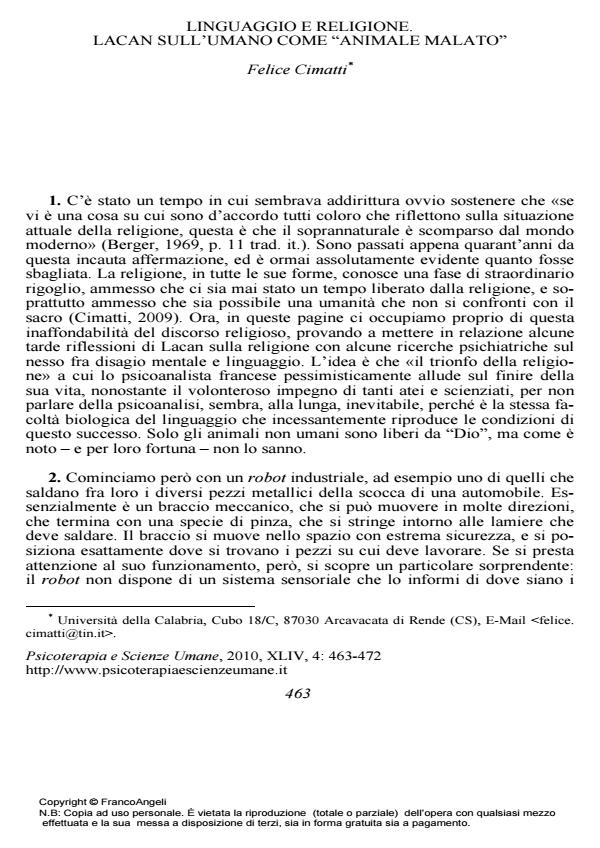Language and religion: on Lacan’s concept of the human being as "sick animal"
Journal title PSICOTERAPIA E SCIENZE UMANE
Author/s Felice Cimatti
Publishing Year 2010 Issue 2010/4
Language Italian Pages 10 P. 463-472 File size 254 KB
DOI 10.3280/PU2010-004002
DOI is like a bar code for intellectual property: to have more infomation
click here
Below, you can see the article first page
If you want to buy this article in PDF format, you can do it, following the instructions to buy download credits

FrancoAngeli is member of Publishers International Linking Association, Inc (PILA), a not-for-profit association which run the CrossRef service enabling links to and from online scholarly content.
A mechanical mind is not frightened of death, because its world is devoid of mystery. For such a mind, language is a mere code. Each thing is denoted by a sign, and for each sign only one thing may exist as its reference. For this reason there is no ambiguity, nor doubt, in the mind which uses only one code. Everything is completely visible, and nothing is hidden. In a language, on the contrary, each sign is related to other signs; meaning is not a thing, it is rather an (indefinite) series of semantic shifts. No such a thing as a proposition’s ultimate meaning can exist. When the mind encounters language it becomes intrinsically restless, because each thought is nothing but the premise for another thought, and so on. Therefore, neurosis is not an accidental condition, on the contrary, it is the very essence of mankind. Consequently, Lacan holds that in the end religion will triumph, because it is unrivalled as a remedy for the human need for sense.
Keywords: Human nature, language, code, neurosis, religion
Felice Cimatti, Linguaggio e religione. Lacan sull’umano come "animale malato" in "PSICOTERAPIA E SCIENZE UMANE" 4/2010, pp 463-472, DOI: 10.3280/PU2010-004002